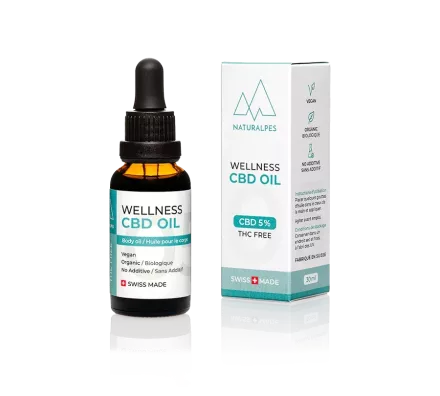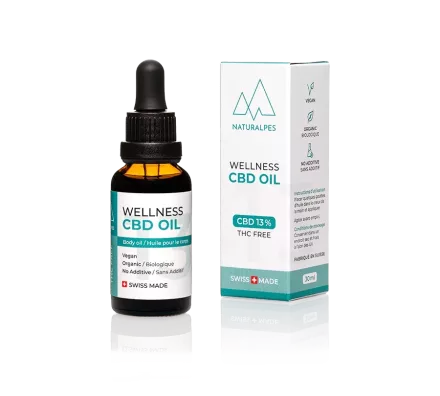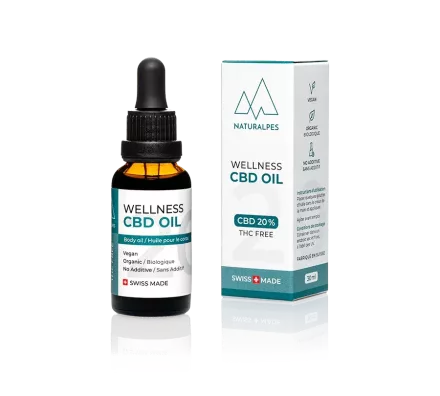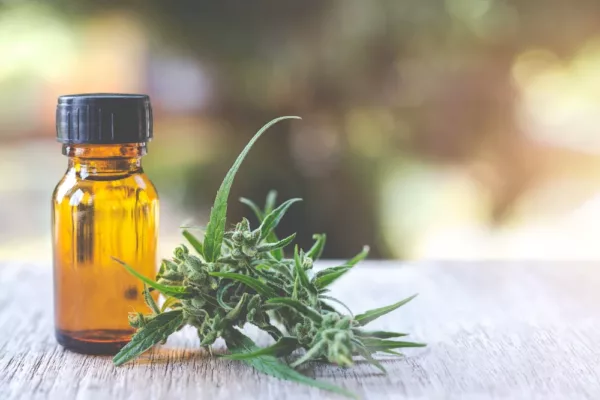Your basket is empty
Travelling with CBD: the complete guide
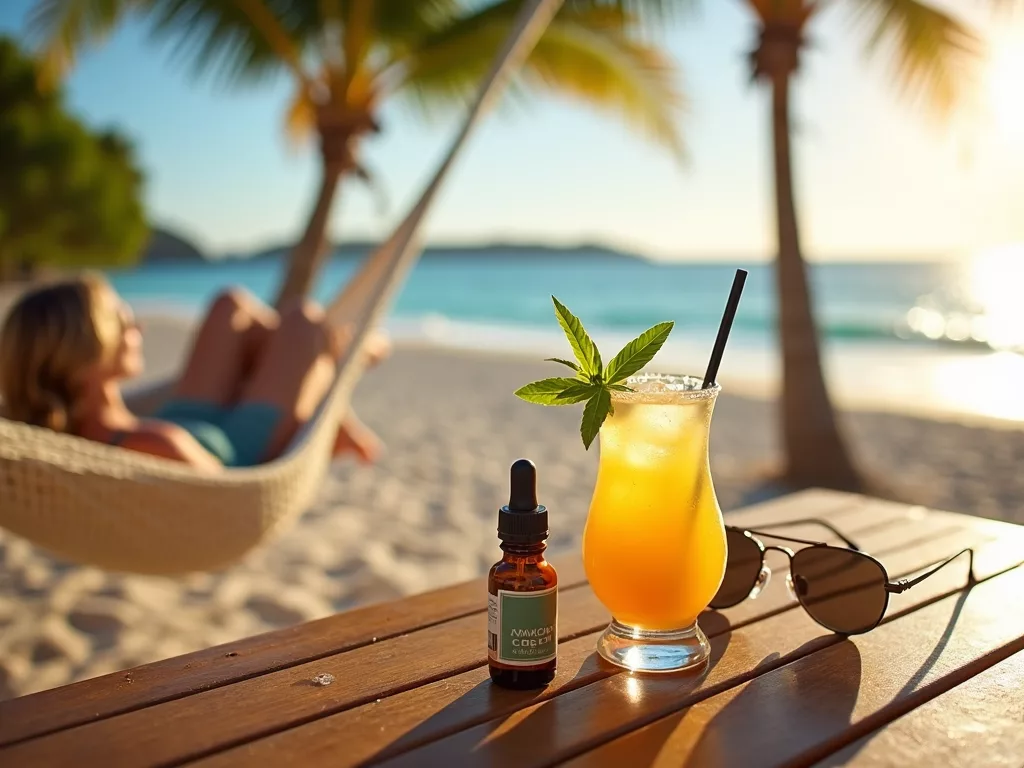
Travelling with CBD raises many questions for regular consumers of cannabidiol, a product now firmly entrenched in the daily lives of many.
Whether in the form of oil, flowers or other derivatives, the rules differ from country to country and airline to airline, making travel preparation sometimes complex.
In this guide, we explain everything you need to know about traveling with cannabidiol, with a special focus on Europe, Switzerland and destinations outside the European Union.
Can you travel with CBD in Europe?
The answer depends on the country of departure, destination and specific CBD regulations. In general, it is possible to travel with CBD under certain conditions:
- The product must contain an amount of THC that complies with local laws (often less than 0.2% or 1%, depending on the country).
- Details of the product's composition on the packaging may be requested in the event of an inspection.
- The forms of CBD (oil, flowers, etc.) may be regulated differently in different countries.
It is therefore essential to be well informed before any trip to avoid any complications.
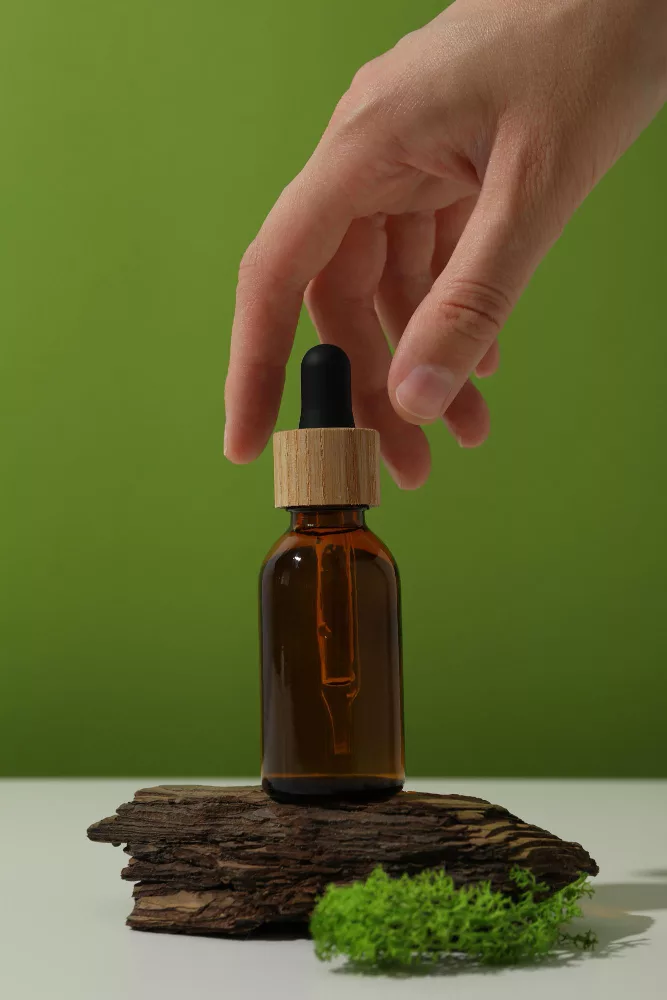
CBD oil rather than flowers
Travelling with CBD requires a few precautions, particularly when it comes to choosing which product to take with you.
To avoid any misunderstandings or checks, it's best to use CBD oil instead of flowers. Discreet, easy to carry and less likely to be confused with illicit substances, it's ideal for travel.
Naturalpes CBD Wellness oil is ideal for travelling with complete peace of mind. As it contains no trace of THC, it reduces the risk of limitations or restrictions, whatever the destination.
Just be sure to respect the quantities authorized by airlines and local regulations.
Travelling with CBD by plane
Airport security check
In Europe, traveling with CBD by plane requires compliance with certain rules, particularly at security checkpoints. Any liquid over 100 ml is prohibited in the cabin, so it's essential to make sure your CBD oil is packaged in a bottle that complies with airline restrictions.
Presentation to customs
If you are carrying CBD, it is recommended that you carry :
- The product purchase receipt (sales slip), which may be requested in the event of an inspection.
- The product's original packaging, containing information on its composition and regulatory compliance.
CBD flowers can pose more of a problem, as they visually resemble cannabis containing THC. They should not be transported to certain countries, even if they are legal to sell.
REGULATIONS IN EUROPE
Each EU country has its own rules on CBD.
Here is a detailed overview with official sources:
European countries where CBD travel is allowed
France :
Travelling with CBD in France is possible, but under certain conditions. CBD is legal only if the final product contains no detectable traces of THC, and is derived from authorized hemp varieties containing less than 0.3% THC. On the other hand, the sale of raw flowers and leaves remains prohibited. To travel with CBD without risk, it's essential to comply strictly with current regulations.
Germany:
Since April 1, 2024, Germany has legalized cannabis for recreational use. Adults can now possess up to 25 grams of cannabis and grow up to three plants for personal use. CBD products remain legal, provided their THC content does not exceed 0.2%. If you're planning to travel with CBD in Germany, make sure your products meet these thresholds to avoid any inconvenience.
In Switzerland
Switzerland stands out for its more flexible cannabidiol regulations. Products containing up to 1% THC are authorized and widely available. If you plan to travel with CBD in Switzerland, this permissive legislation offers a more reassuring framework, provided you always check the conformity of the product carried.
Italy:
Travelling with CBD in Italy is becoming increasingly uncertain. Long considered one of the most permissive countries in Europe, Italy allowed the sale and consumption of products containing up to 0.6% THC.
However, since December 2024, a bill to ban the production, transport and marketing of all cannabis flowers (even from non-psychotropic industrial hemp) has been approved by the lower house.
Pending ratification by the Senate, this development marks an important turning point for those wishing to travel with CBD in the peninsula.
Spain:
In Spain, CBD legislation is very specific. CBD-based products for external use, such as cosmetics, are legal if they contain less than 0.2% THC.
On the other hand, the sale of products intended for human consumption, such as oils or dietary supplements, is prohibited, although this rule is sometimes tolerated.
To travel with CBD in Spain, it is therefore advisable to carry only products that comply with local regulations, mainly for external use and with a THC content of less than 0.2%.
Netherlands:
In the Netherlands, traveling with CBD requires special attention. Although the country is known for its tolerance of cannabis, particularly in coffee shops, legislation on CBD is stricter than elsewhere in Europe.
CBD products are only legal if they contain less than 0.05% THC, a much lower threshold than that applied in other countries. So, to travel with CBD in the Netherlands, it's essential to ensure that your products comply with this strict limit to avoid any infringement.
Portugal :
Travelling with CBD in Portugal is generally possible, provided certain rules are respected. Portuguese legislation authorizes the consumption of CBD-based products, as long as their THC content does not exceed 0.2%.
For travellers entering the country, products that comply with European regulations, notably those without THC or with a THC content of less than 0.2%, are in principle authorized, making it easier to travel within a legal framework.
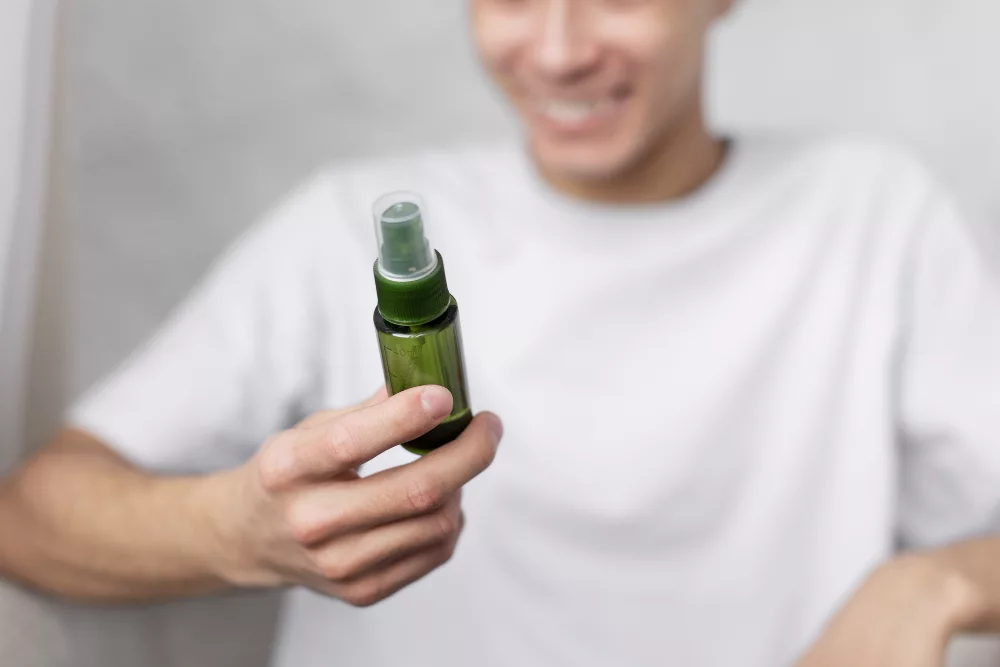
European countries where THC-free CBD is banned
Although traveling with CBD is widely accepted in Europe, some countries impose strict restrictions or even outright bans on its possession and use. Here's an overview of countries where traveling with CBD, even without THC, is risky:
Slovakia
Slovakia is an exception in Europe, where CBD is still considered an illegal substance, classified as a narcotic. Its possession or use can result in criminal penalties. Travelling with CBD in Slovakia is therefore strongly discouraged, regardless of the type of product or its THC content.
Lithuania
Lithuania applies very strict regulations to cannabis-derived products. CBD is subject to severe restrictions and may only be marketed under very specific conditions. Travelling with CBD in Lithuania, even without THC, can lead to legal complications.
Sweden
Sweden applies very strict regulations to CBD. The Swedish Medical Products Agency considers CBD to be a medicine requiring a prescription. What's more, a decision by the Swedish Supreme Court has classified CBD oils containing even the slightest trace of THC as narcotics. It is therefore inadvisable to carry CBD, even THC-free CBD, without a medical prescription.
Before traveling, it's essential to find out about the legislation in force to avoid any legal problems. In countries where CBD is banned, it's best not to take the risk of traveling with these products.
TRAVELING WITH CBD OUTSIDE EUROPE
Countries outside Europe often apply stricter rules. Here are a few examples:
United States:
Hemp-derived CBD containing less than 0.3% THC has been federally legal in the US since the passage of the Farm Bill in 2018. However, traveling with CBD across the country isn't always as straightforward as it seems. Indeed, regulations vary considerably from state to state.
Other states, on the other hand, allow the transport and possession of THC-free CBD without noticeable restrictions, provided the product complies with local regulations. Here are a few states where traveling with THC-free CBD is permitted:
- California: Fully authorizes the purchase and possession of THC-free CBD.
- Colorado: CBD is legal in all forms, including THC-free.
- New York: Allows possession and use of THC-free CBD.
- Texas: THC-free CBD is permitted, but a certificate of analysis is recommended to prove compliance.
- Florida: THC-free CBD is legal, but must be purchased from licensed sellers.
In any case, it is strongly advised to check the regulations specific to each state before traveling with CBD.
Canada :
In Canada, although cannabis and CBD are legal for adults, it is illegal to import or export cannabis in any form, including CBD-containing products, without a valid permit or exemption from Health Canada. This prohibition even applies to THC-free products. Consequently, it is not permitted to travel with CBD, even without THC, to or from Canada.
In addition, the Canada Border Services Agency (CBSA) stipulates that crossing the Canadian border with cannabis, including CBD products, without proper declaration is a serious criminal offence that can result in arrest or prosecution.
It is therefore strongly recommended not to attempt to import or export CBD products to or from Canada, even if they do not contain THC, to avoid any legal problems.
https://www.cbsa-asfc.gc.ca/travel-voyage/cannabis-fra.html
Australia:
In Australia, the use of CBD products is legal only in a medical setting and requires a valid medical prescription. Travelling with CBD can therefore prove complex, as THC-free CBD-containing products are available to patients, but access to them is strictly regulated. Since 2021, low-dose CBD has been reclassified as a Schedule 3 drug, allowing certain CBD products to be accessible over the counter without a prescription, subject to strict approval processes.
However, the manufacture, distribution and consumption of CBD remain highly regulated by the Therapeutic Goods Administration (TGA). Medical CBD products must meet strict quality and safety standards to protect patients. It is important to note that importing and exporting CBD is generally illegal without a proper license.
https://www.littlegreenpharma.com/au/cbd/legality/?
Japan:
CBD is legal in Japan only if it contains absolutely no trace of THC. Japanese narcotics legislation is very strict: even the slightest presence of THC in imported or sold products is strictly forbidden. Moreover, only extracts derived from hemp stalks and seeds are authorized, while the use of leaves and flowers is prohibited.
As a result, traveling with CBD in Japan requires particular vigilance. The authorities apply severe penalties in the event of infringement, up to and including substantial fines and even prison sentences. It is therefore essential to ensure that the CBD products you are carrying comply fully with local regulations before entering Japanese territory.
Dubai and United Arab Emirates:
The possession, use and importation of CBD is strictly prohibited in the United Arab Emirates, including Dubai. Any form of cannabis-derived product, even without THC, is classified as a controlled substance under federal narcotics law. Penalties for possession include prison sentences, substantial fines and confiscation of the product. Even transit with CBD through Emirati airports can lead to legal complications. It is strongly advised not to travel with CBD to or via the Emirates.
Before traveling with CBD, it's crucial to check local laws and avoid any unnecessary risks.
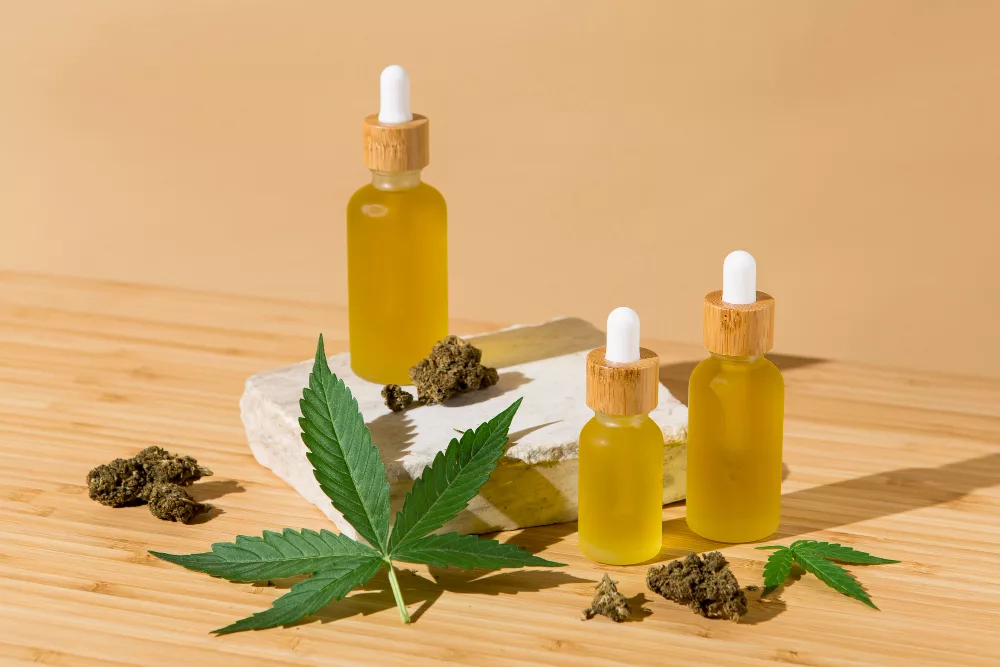
Practical tips for travelling with CBD
- Check the laws of the destination country before taking CBD with you.
- Choose THC-free oils rather than flowers to avoid confusion with illegal cannabis.
- Transport the product in its original packaging, accompanied by proof of purchase.
- Check with airlines, as some prohibit the transport of CBD even in countries where it is legal.
Regulations vary from one carrier to another:
- Turkish Airlines: No official information on CBD authorization. It is recommended to contact the airline before travelling.
- Air France: Authorizes the transport of CBD under certain conditions, provided the THC content complies with local regulations.
- Swiss International Air Lines: Accepts CBD shipments provided they comply with the laws of the countries of departure and destination.
- British Airways: Allows CBD, but advises passengers to check local regulations before boarding.
- Iberia: Tolerates CBD if products comply with local laws, but recommends carrying only oils and capsules.
- Virgin Atlantic: Does not explicitly mention CBD in its terms and conditions, but follows local regulations in the countries it serves.
- Lufthansa: Acceptance of CBD shipments subject to compliance with local legislation.
- Finnair: Allows CBD, but recommends that passengers carry documents attesting to its legal compliance.
Some Middle Eastern airlines, such as Emirates and Qatar Airways, totally prohibit the transport of CBD in any form. It is therefore strongly recommended to consult the airline's website before travelling.
Why choose Naturalpes CBD oil?
Naturalpes CBD Wellness Oil, a THC-free CBD product, stands out for its quality, absence of THC and compliance with Swiss and European regulations. Carefully crafted from high-quality hemp, it undergoes rigorous controls to guarantee its purity.
Conclusion
Travelling with CBD is possible in many countries, but it's essential to get the facts before you go.
Each country applies its own rules, and penalties for non-compliance can be severe.
If you're traveling with CBD, it's advisable to opt for THC-free oils, such as Naturalpes Wellness Oil, to avoid any risks associated with local regulations. Also remember to check the purity level of the hemp or CBD oil, by consulting the label or a certificate of analysis, to ensure its legal compliance.
Keeping the product's packaging can also be useful in the event of an inspection, as it can be used to prove compliance with current legislation. In case of doubt, it's best to avoid traveling with CBD to avoid any legal risk.
